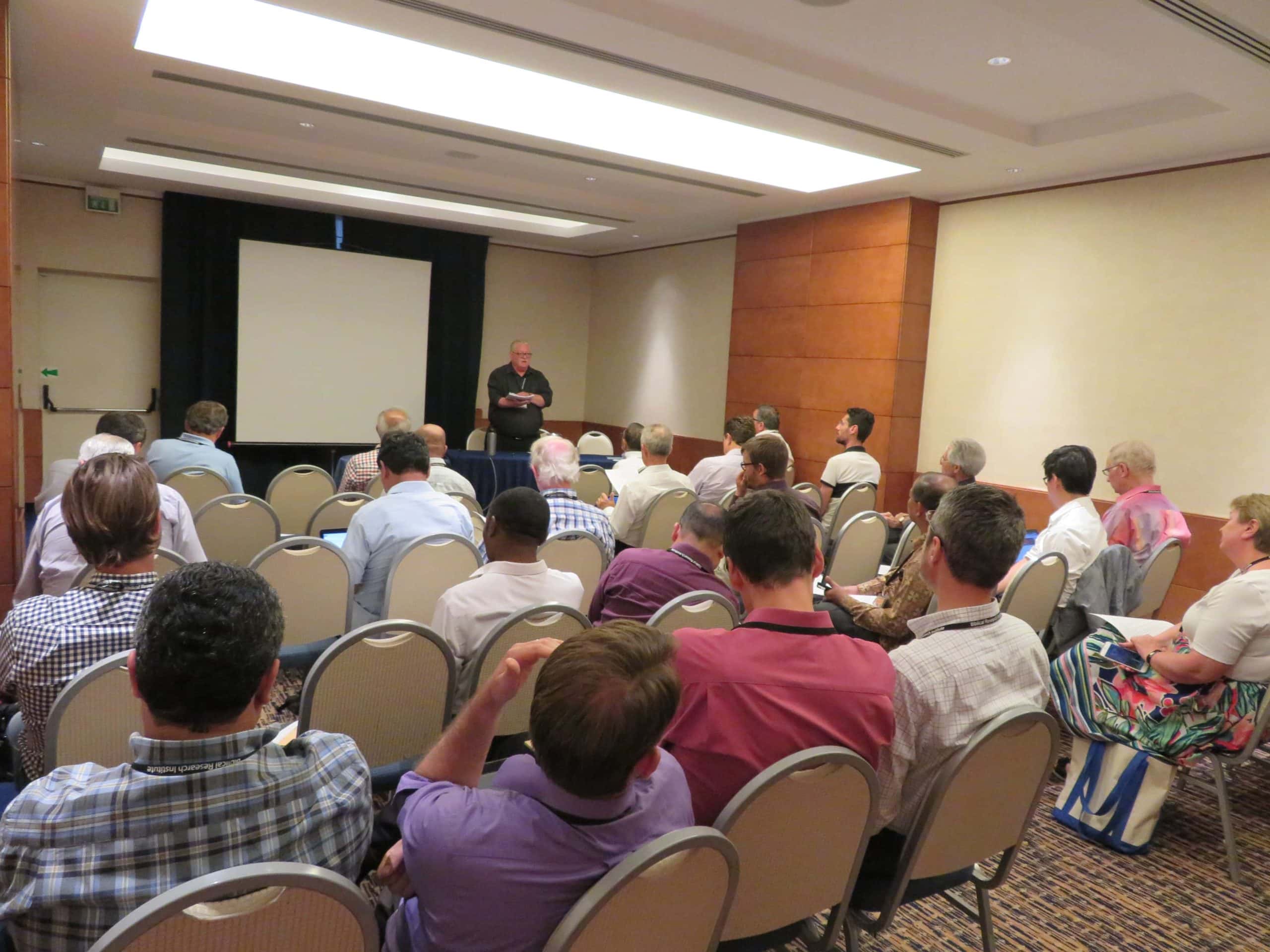
he following article is part of a series of reports from the Fourth International Bible Conference, hosted in Rome, Italy, June 11-21, 2018. The theme of the Bible conference is eschatology, a word that means “the teaching of the last things” and describes the study of last-day events and associated subjects.—Editors
The fact that the world’s climate is changing for the worse should be a motivation to double our evangelistic and social efforts as God’s remnant church, said several scholars in separate presentations at the Fourth International Bible Conference in Rome, Italy, held June 11-21, 2018. Among the phenomena of decreasing fresh water supplies, deforestation, desertification, and more frequent natural disasters, Adventists should find a silver lining prompting them to mission, they said.
“The [Adventist] Church has an opportunity to be God’s ‘catalytic remnant,’ ” said Ben Holdsworth, a New Testament professor at Union College in Lincoln, Nebraska, United States. “The church acts as a catalyst, being the means by which Christ’s mission and purpose are furthered in the world from His ascent until His return.”
Antillean Adventist University professor Silvia Schimpf-Torreblanca seconded this thought. “Eschatology and environmentalism are not, after all, contradictory but complementary ideas,” she said. “The care of the earth is not disconnected from the Christian mission of proclaiming the good news of salvation.”
Andrews University associate professor of Hebrew Bible A. Rahel Wells agreed. “Eschatology provides a definitive motivation for ecology,” she said.
The Five E’s
Holdsworth, in his paper entitled “Adventist Eschatology and Ecclesiology in a Climate-Disrupted World,” discussed the intersections between what he called “The Five E’s” — eschatology, ecclesiology, evangelism, economics, and environment.
Adventist eschatology talks about an increasing disruption in nature as we approach the second coming of Jesus and final restoration, Holdsworth reminded his audience. Ecclesiology, on the other hand, should emphasize how this new reality is increasingly affecting many church members, especially in regions of the world where the church is growing faster. At the same time, increasing disruption will affect the economy of societies, including local churches and church institutions, and this is already happening in some world church regions.
Despite the bleak prospects, said Holdsworth, current climate disruption is a tool that can be effectively used for evangelism. He quoted leading climate scientist Susanne Moser, who stated in 2015 regarding climate change, “We’re just beginning to understand the most catastrophic situations, and we’re starting to sound like TV evangelists in what we’re trying to say.”
Accordingly, Holdsworth emphasized, the church should recognize “climate-driven environmental circumstances … not only as eschatological fulfillment but as an opportunity to engage in evangelism as spoken and lived efforts to bring hope to a world immersed in growing crisis.”
Setbacks to Church Involvement
The clear mandate to care for the earth and what’s in it has traditionally clashed with the positions of some church members, scholars said. As Wells summarized, the “Seventh-day Adventist understanding of end-time events involves the reality that the earth will burn at the end of time,” she said. It is something that has often translated into placing environmental care in the back seat, “since the earth will be renewed by God anyway.”
According to Wells, however, it is a position that overlooks the clear descriptions of God’s care for the earth and human ecological responsibility in the original creation, the new earth, and all laws for the present. “Eschatological passages include a picture of earth restored and rejuvenated,” she explained. “Eschatology actually presupposes and necessitates ecological care in the present, rather than opposing it.”
On the other hand, in addressing this environmentalism-eschatology dilemma, Adventists have traditionally felt some concern about the association of environmentalism with certain political and philosophical rhetoric, Schimpf-Torreblanca explained. “Darwinian naturalists and New Age pantheists are at the forefront of efforts to protect the environment,” she said.
Schimpf-Torreblanca also pointed out that it is usual for the environmentalists’ agenda to be accompanied by a political battle between governments, financial consortiums, scientists, and others. It is something, she said, that has led Adventists to withdraw and not get involved. But as Adventist pioneers showed, being good stewards of God’s creation should often prompt us to be socially and politically involved, she said, because many issues can be better addressed at broader social levels.
Thus “it is worth asking whether a greater participation of the church in environmental causes would help or be a distraction from the most important task that is to share Christ with others,” Schimpf-Torreblanca said. She asked, “Could it be part of what the church is really trying to accomplish?”
A Motivation for Action
For Holdsworth, the answer is clear, as Adventist social involvement is not wishful thinking but a reality. New climate change disruption, he emphasized, presents novel opportunities for reflection-driven church action at international, national, and local levels. It’s already happening, he said, as he shared some examples of how the Adventist Church is engaging society in assisting those affected and pointing them to Jesus.
This proclamation of “rest, renewal, and hope,” Holdsworth suggested, should be based on shared principles. He mentioned the principles of mutuality — mutual concern and care for our fellow members; sustainability — how possible and sustainable it is to keep doing what we are doing as a church; and resilience — “the principle of dependence of God in the face of trial.” Holdsworth also discussed endurance — standing firm to the end despite suffering disruptive loss; and productivity — being occupied until Jesus comes, as we meet the needs of people around us and strive to spread the good news of salvation.
“The Adventist church needs to create an ecclesiology that helps sustain its unity and capacity to adapt and grow in an increasingly vulnerable, climate-disrupted world,” he concluded.
Follow Adventist Review and Adventist World for continued coverage from the Fourth International Bible Conference.